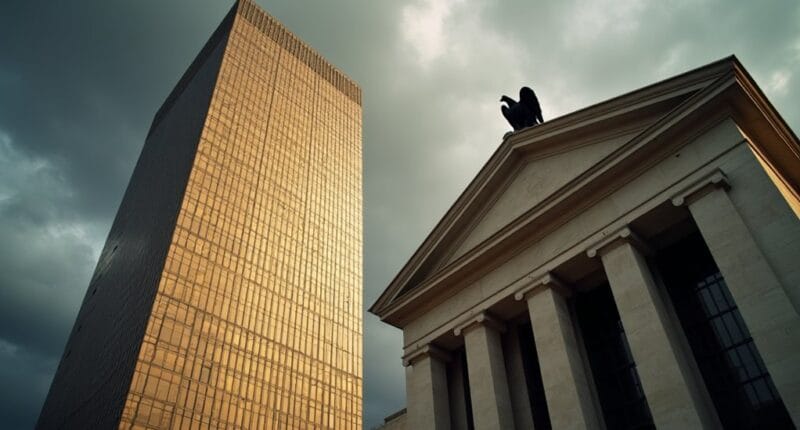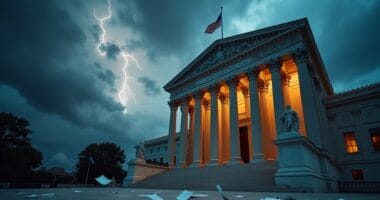The U.S. government’s influence on private lending isn’t exactly front-page news, but it’s massive. Through public pension funds and loose regulations, they’ve helped create a whopping $1.7 trillion shadow banking system. Traditional banks, handcuffed by post-2008 rules, watch as risky borrowers flock to private lenders. Meanwhile, retirement money flows into these unregulated markets like water. Sound familiar? It should – this financial house of cards looks suspiciously like 2007 all over again.

While traditional banks grapple with post-2008 regulations, private lenders have swooped in like vultures to feast on the corporate lending market. The numbers are staggering: $1.7 trillion in private credit, growing bigger by the day. And guess who’s secretly helping fuel this feeding frenzy? Uncle Sam himself.
The government’s fingerprints are everywhere, though they’d rather you didn’t notice. After the financial crisis, regulators squeezed traditional banks with strict lending rules. But instead of making things safer, they just pushed risky borrowers into the welcoming arms of private lenders. Talk about unintended consequences. The situation mirrors the dangerous instability of the wildcat banking era when unregulated state banks caused widespread financial hardship.
These private credit markets aren’t exactly your friendly neighborhood bank. They’re serving up loans to companies that traditional banks won’t touch – tech firms with fancy revenue streams but paper-thin profits. The typical loan size hovers around $65 million per deal. And who’s bankrolling this operation? Your retirement money. That’s right – pension funds, insurance companies, and family offices are all throwing cash at private credit like it’s going out of style.
The government’s involvement goes deeper than just regulation. Public pension funds – managing money for teachers, firefighters, and other government workers – are pumping billions into private credit funds. Meanwhile, the Fed’s monetary policy keeps the party going by influencing interest rates and liquidity. Financial experts recommend maintaining diversified investments to protect against market volatility.
Here’s where it gets really interesting: traditional banks aren’t taking this lying down. They’re jumping into the private credit game themselves, partnering up with these newfangled lenders or starting their own funds. It’s like watching your straight-laced uncle try to be cool at a college party.
But there’s a dark side to all this growth. The credit quality in these portfolios isn’t exactly sterling, and an economic downturn could turn this party into a nightmare real quick. With limited regulation and oversight, we’re building a house of cards that looks eerily similar to 2007. Different players, same game – and we all know how that movie ended.





